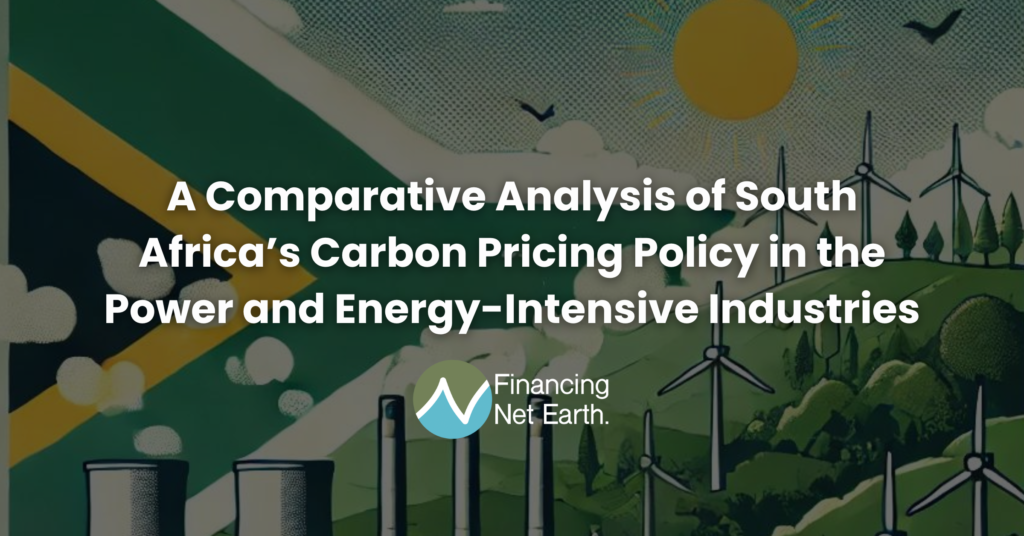A Comparative Analysis of South Africa’s Carbon Pricing Policy in the Power and Energy-Intensive Industries
By Kgalalelo Makamela and Roshelle Ramfol
Carbon pricing strategies are an integral policy instrument for achieving a decarbonised economy. By increasing the price of carbon emissions to reflect the social cost and harmful effects of climate change, users are prompted to adopt sustainable energy options.
This study evaluates South Africa’s carbon tax regime design as an accelerant towards the decarbonisation of the energy-intensive sector. The analysis reveals that South Africa’s carbon tax is ineffective in decarbonising the energy-intensive sector. Low carbon prices, excessive free emission allowances, and continued subsidy support of fossil fuels have limited the potential of South Africa’s carbon tax towards shifting consumption and production away from greenhouse gas-intensive activities.
A comparative tax analysis of Canada, Switzerland, and the United Kingdom’s carbon pricing policies is conducted to benchmark policy lessons for South Africa. First, a review is performed of South Africa’s proposed carbon pricing policy. Second, a comparative analysis is conducted on the current practice in the comparative countries. Third, policy lessons are drawn from the comparative countries to accelerate decarbonisation in South Africa’s energy-intensive industries. The paper contributes to tax policy scholarship on designing a carbon pricing model for South Africa’s energy-intensive sector.
To read the full-text of this research, you can request a copy directly from the authors, Kgalalelo Makamela and Roshelle Ramfol. Click here to request a copy.

